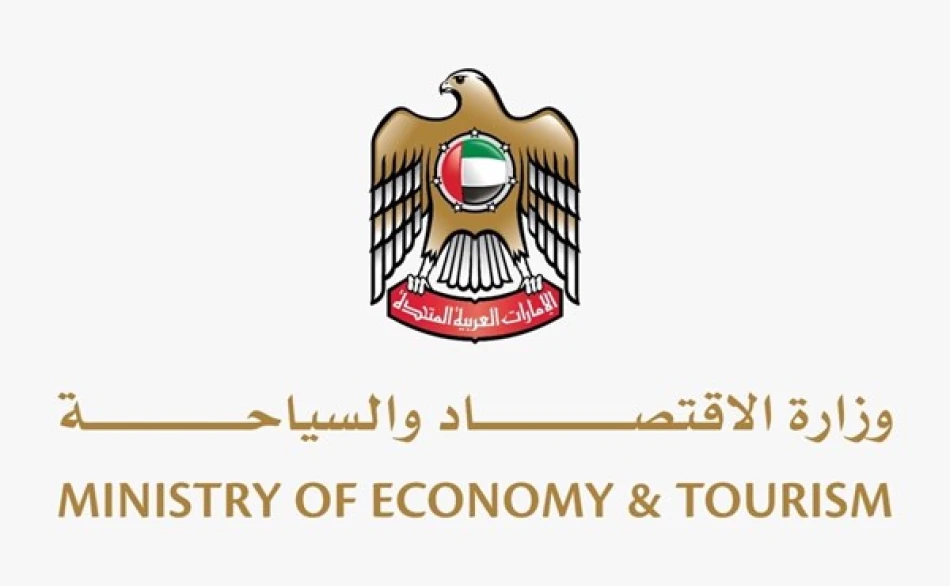
Economic and Tourism Ministry Imposes $11.4M Penalties to Combat Money Laundering
UAE Cracks Down Hard on Money Laundering: $11.4 Million in Fines Signal Zero-Tolerance Approach
The UAE's Ministry of Economy and Tourism has imposed over AED 42 million ($11.4 million) in administrative penalties across 1,063 violations during the first half of 2025, marking one of the most aggressive anti-money laundering enforcement campaigns in the region. The crackdown targeted non-financial businesses and professions, signaling Dubai's determination to maintain its status as a trusted global financial hub amid increasing international scrutiny of Gulf financial centers.
Luxury Sectors Bear the Brunt of Enforcement
The inspection campaign revealed significant compliance gaps across four key sectors under the ministry's supervision. Precious metals and gemstone traders faced the heaviest penalties, receiving 473 violations worth AED 20 million—nearly half of all fines imposed. This focus reflects global concerns about these sectors' vulnerability to money laundering schemes.
Real estate intermediaries weren't far behind, accumulating 495 violations valued at approximately AED 18.5 million. The remaining 95 violations, totaling over AED 4 million, targeted corporate service providers and auditors—sectors that often facilitate complex financial structures.
Why These Sectors Matter
The UAE's targeting of precious metals, real estate, and corporate services aligns with international anti-money laundering standards. These sectors have historically been exploited for illicit financial flows due to their high-value transactions, complex ownership structures, and cross-border nature. The Financial Action Task Force (FATF) has repeatedly highlighted these areas as priority enforcement zones.
Strategic Positioning Amid Global Compliance Pressure
This enforcement wave comes as Gulf financial centers face mounting pressure to demonstrate robust anti-money laundering frameworks. The UAE's approach mirrors similar crackdowns in Singapore and Hong Kong, where authorities have significantly increased penalties and enforcement actions to maintain their competitive edge as international financial hubs.
Safia Hashem Al Safi, Assistant Undersecretary for Commercial Supervision and Governance, emphasized that these results reflect the ministry's advanced supervisory methodology aimed at ensuring maximum compliance with anti-money laundering legislation. The approach combines desk-based analysis with field inspections, creating a comprehensive oversight framework.
Market Implications and Business Response
For businesses operating in the UAE's non-financial sectors, this crackdown represents a fundamental shift toward stricter compliance expectations. Companies must now invest significantly more in due diligence procedures, risk assessment systems, and suspicious transaction reporting mechanisms.
The Cost of Non-Compliance
The average penalty per violation exceeded AED 39,000 ($10,600), a substantial sum that makes compliance investments economically rational. This pricing strategy effectively makes non-compliance more expensive than proper risk management systems.
The ministry's focus on "corrective action" rather than purely punitive measures suggests authorities prefer business rehabilitation over market disruption. However, the scale of penalties indicates zero tolerance for systematic non-compliance.
Regional Competition and International Standards
The UAE's aggressive stance positions it favorably against regional competitors. While Saudi Arabia develops its financial sector through NEOM and Riyadh's financial district, and Qatar prepares for increased scrutiny around major sporting events, the UAE is proactively demonstrating compliance leadership.
This approach follows successful models from established financial centers. Singapore's monetary authority has similarly increased enforcement actions, while the UK and US have imposed billions in penalties on financial institutions for anti-money laundering failures.
Looking Forward: Sustained Enforcement Expected
The ministry has made clear this represents an ongoing strategy rather than a one-time initiative. Continued field monitoring and evaluation processes will maintain pressure on targeted sectors, while the threat of additional campaigns encourages voluntary compliance improvements.
For international businesses considering UAE operations, this enforcement pattern suggests the country is serious about maintaining its reputation as a clean financial jurisdiction. Companies entering these markets should budget significantly for compliance infrastructure and ongoing monitoring systems.
The success of this approach will likely influence other Gulf states' regulatory strategies, potentially creating a regional race toward higher compliance standards—ultimately benefiting the region's long-term financial sector development goals.
Most Viewed News

 Layla Al Mansoori
Layla Al Mansoori






